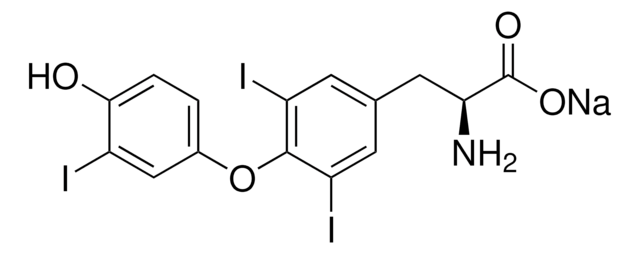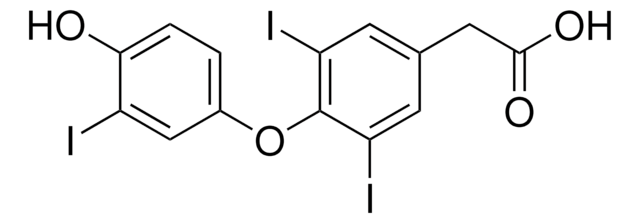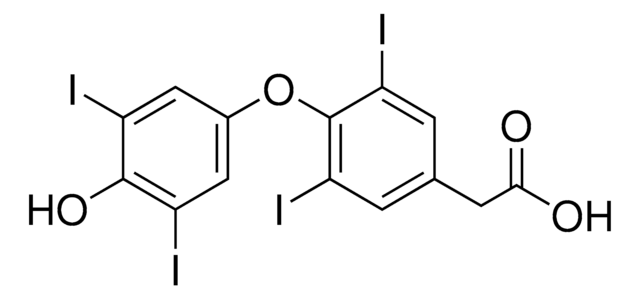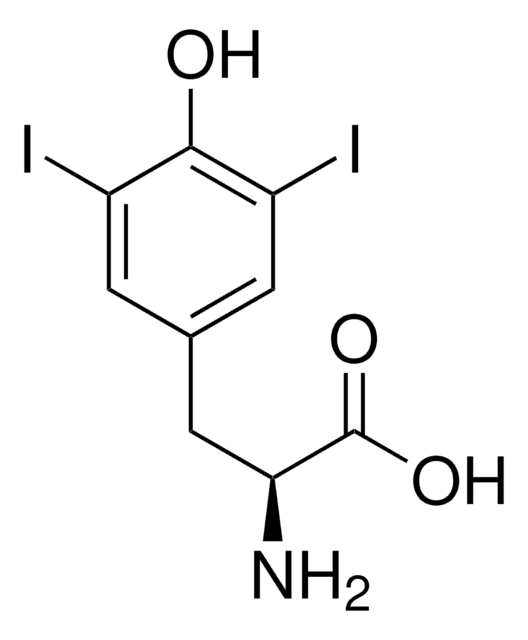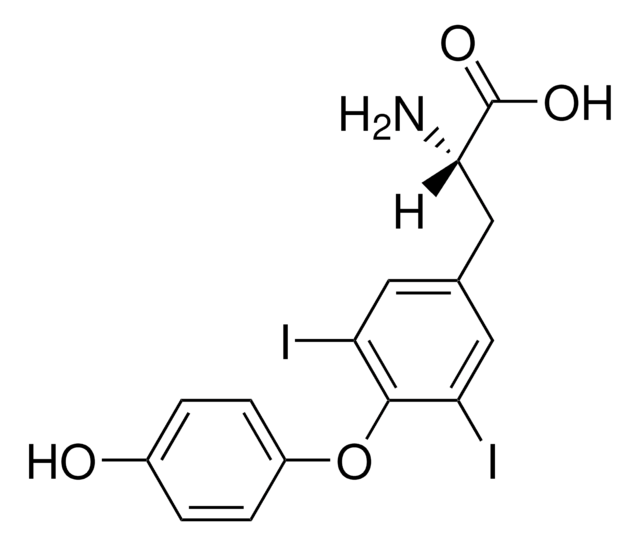1368008
USP
Liothyronine
United States Pharmacopeia (USP) Reference Standard
Synonym(s):
3,3′,5-Triiodo-L-thyronine, O-(4-Hydroxy-3-iodophenyl)-3,5-diiodo-L-tyrosine, Liothyronine, T3
About This Item
Recommended Products
grade
pharmaceutical primary standard
API family
liothyronine
manufacturer/tradename
USP
mp
234-238 °C (lit.)
application(s)
pharmaceutical (small molecule)
format
neat
storage temp.
2-8°C
SMILES string
N[C@@H](Cc1cc(I)c(Oc2ccc(O)c(I)c2)c(I)c1)C(O)=O
InChI
1S/C15H12I3NO4/c16-9-6-8(1-2-13(9)20)23-14-10(17)3-7(4-11(14)18)5-12(19)15(21)22/h1-4,6,12,20H,5,19H2,(H,21,22)/t12-/m0/s1
InChI key
AUYYCJSJGJYCDS-LBPRGKRZSA-N
Gene Information
human ... THRA(7067) , THRB(7068)
Looking for similar products? Visit Product Comparison Guide
General description
Application
Also used to prepare standard, standard stock, Liothyronine stock, and resolution solutions for assay, and identification test according to given below monographs of the United States Pharmacopeia (USP):
- Thyroid
- Levothyroxine Sodium Tablets
- Liothyronine Sodium Tablets
Analysis Note
Other Notes
Signal Word
Danger
Hazard Statements
Precautionary Statements
Hazard Classifications
STOT RE 1
Target Organs
Thyroid,Cardio-vascular system,Kidney
Storage Class Code
6.1C - Combustible acute toxic Cat.3 / toxic compounds or compounds which causing chronic effects
WGK
WGK 3
Flash Point(F)
Not applicable
Flash Point(C)
Not applicable
Certificates of Analysis (COA)
Search for Certificates of Analysis (COA) by entering the products Lot/Batch Number. Lot and Batch Numbers can be found on a product’s label following the words ‘Lot’ or ‘Batch’.
Already Own This Product?
Find documentation for the products that you have recently purchased in the Document Library.
Customers Also Viewed
Our team of scientists has experience in all areas of research including Life Science, Material Science, Chemical Synthesis, Chromatography, Analytical and many others.
Contact Technical Service

